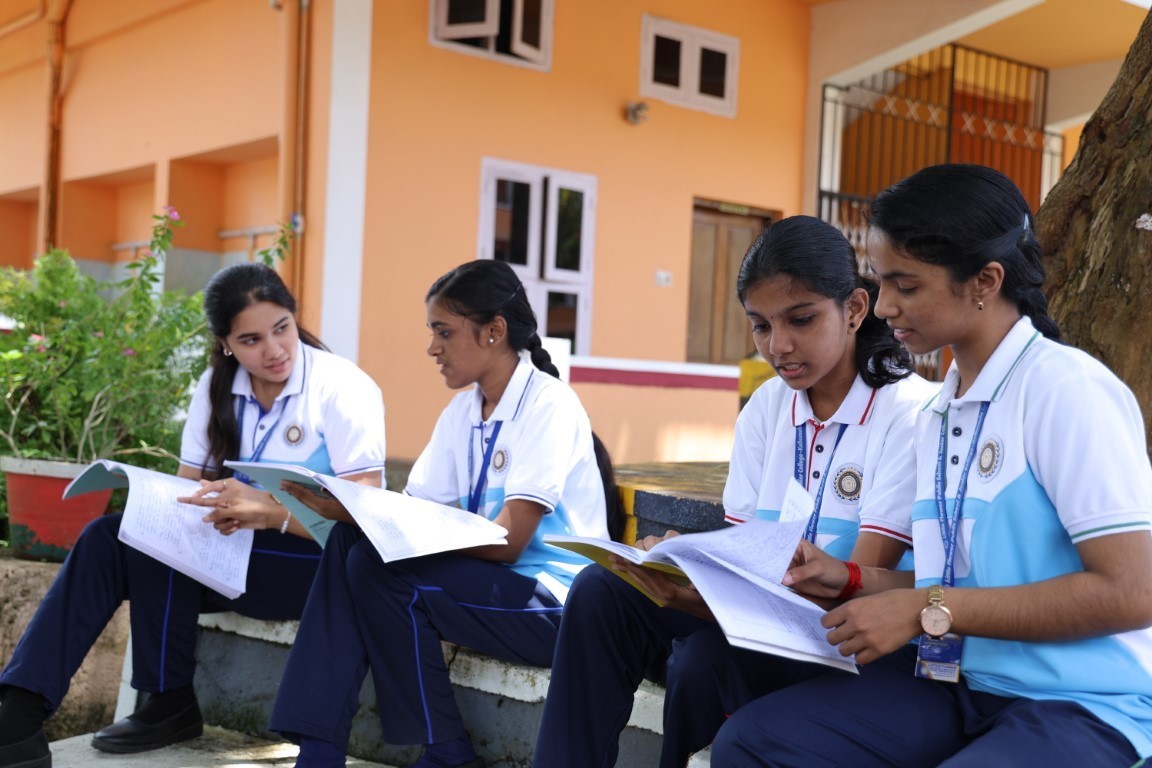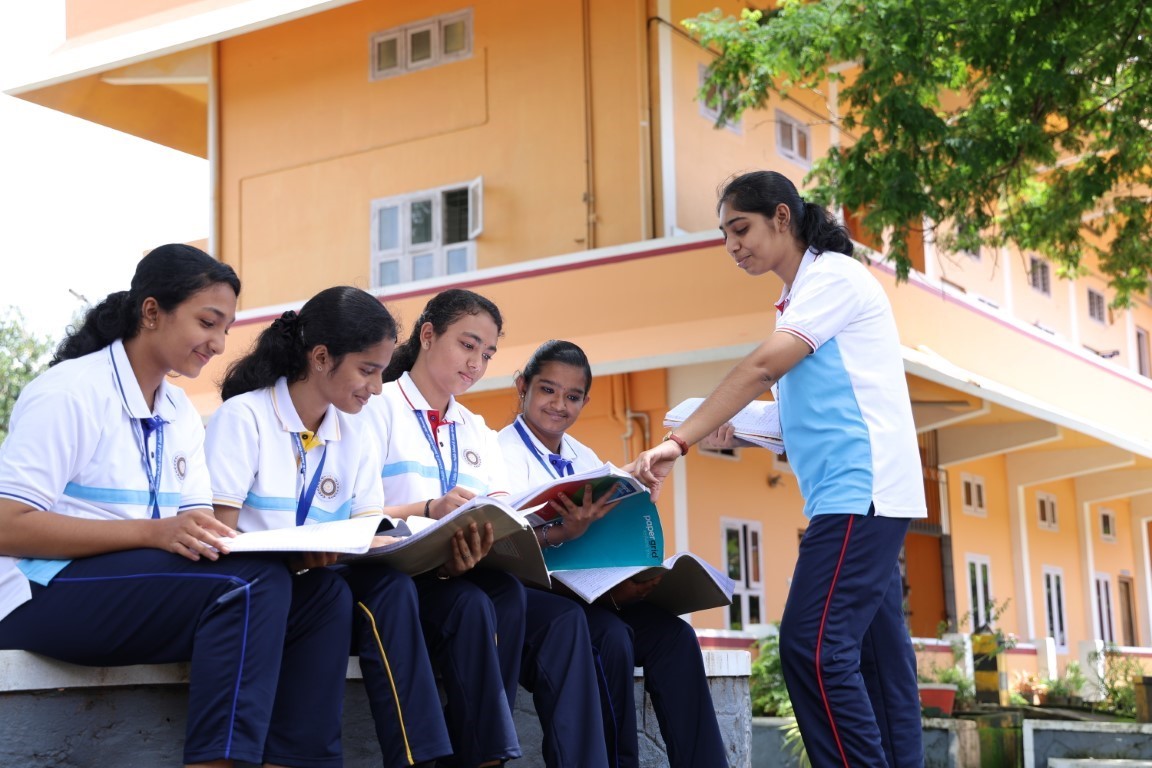Examination Module

Pre-Primary and Primary Assessment Overview
At the Pre-Primary Level, three evaluations are held throughout the year, and student performance is reported in grades. From Standard I onwards, a structured examination module is followed:
i) Scholastic Area
The assessment structure for classes I to VIII is designed in line with the Right to Education (RTE) Act 2009, consisting of two terms: Term 1 and Term 2.
ii) Subject Enrichment Activities
These are subject-specific activities focused on enhancing students’ understanding and skills. Activities are conducted throughout each term and evaluated at term-end. Highlights include:
- Mathematics: Puzzle-solving (Sudoku, KenKen), guest lectures on applied mathematics, and math-based project presentations.
- Science: Science fairs, industry expert lectures, science Olympiad participation, and field trips to research centers.
- Language: Creative writing workshops, book clubs, poetry recitals, debates, public speaking competitions, and literary festivals.
- Social Studies: Cultural festivals, GeoBee competitions, and field trips to historical sites and museums.
- Art and Music: Art exhibitions, drama performances, and art/music workshops, fostering subject knowledge, creativity, critical thinking, and public speaking skills.
These enrichment activities build confidence, innovation, and problem-solving skills, preparing students for future careers and education.
iii) Co-Scholastic Activities
Co-Scholastic Activities support holistic development, focusing on life skills, values, and personal growth. Activities include:
- Sports and Games
- Music, Dance, and Drama
- Art, Craft, and Painting
- Debate, Public Speaking, and Elocution
- Quiz, Puzzle, and Chess Clubs
- Literary and Creative Writing
- Community Service and Social Work
- Environmental and Science Clubs
- Yoga and Meditation
- Leadership and Entrepreneurship Programs
These activities aim to nurture personality, teamwork, and creativity alongside academics.
iv) Discipline and Personal Development Assessment
In addition to academic performance, students are assessed on their discipline and personal growth. Key evaluation areas include:
- Attendance and Punctuality
- Sincerity and Commitment
- Behavior and Conduct
- Personal Grooming and Tidiness
- Respect for Rules and Regulations
- Social Responsibility and Community Awareness
- Interpersonal Skills and Relationships
Supporting activities include counseling, parent-teacher conferences, and, when necessary, loss of privileges or grade penalties to reinforce positive behavior.
v) Examination Absence Policy
vi) Cheating Policy
Students found cheating or subsequently discovered to have done so will face disqualification from the examination.






